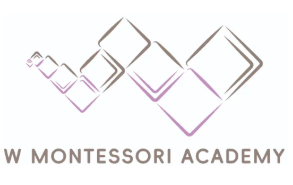
Summer is a season of growth, exploration, and creativity. For children, it is a time to step away from the traditional classroom and engage in meaningful learning experiences that spark curiosity. One of the most effective ways to combine learning with fun during the summer months is through a Montessori summer program. These programs are designed to nurture a child’s independence, creativity, and love for learning while providing a safe and stimulating environment.
In this blog, we will explore what a Montessori summer program entails, its benefits, and why it is becoming a preferred choice for parents seeking holistic education for their children.
What is Montessori Summer?
A Montessori summer program is a summer enrichment initiative that follows the principles of the Montessori educational approach, created by Dr. Maria Montessori. Unlike traditional summer camps that primarily focus on recreational activities, Montessori summer programs blend hands-on learning, practical life skills, and creative exploration in a child-centered environment.
Core Principles of Montessori Summer Programs
Child-Centered Learning: Children have the freedom to choose activities that interest them, fostering self-motivation and engagement.
Hands-On Exploration: Learning is tactile and experiential, allowing children to understand concepts through real-life application.
Mixed Age Groups: Children of different ages learn together, encouraging mentorship, collaboration, and social growth.
Focus on Independence: Programs emphasize self-reliance and problem-solving, empowering children to make decisions and manage tasks.
By following these principles, Montessori summer programs offer a unique balance between structured guidance and personal freedom, ensuring children develop academically, socially, and emotionally.
Benefits of Montessori Summer Programs
Enrolling your child in a Montessori summer program offers numerous advantages that extend beyond traditional summer camp experiences. Here are some of the key benefits:
1. Academic Enrichment
While summer is often associated with a break from school, Montessori summer programs help children retain and even enhance their academic skills. Through engaging activities in math, language, science, and art, children reinforce their learning in a natural, enjoyable way.
2. Social Development
Montessori summer programs encourage collaboration and communication among children. Activities such as group projects, role-playing, and cooperative games help children develop empathy, teamwork, and conflict resolution skills.
3. Emotional Growth
By allowing children to choose activities and work at their own pace, Montessori summer programs foster self-confidence, resilience, and emotional intelligence. Children learn to trust their abilities and develop a sense of responsibility for their actions.
4. Creativity and Imagination
Art, music, and hands-on projects are integral to a Montessori summer experience. These creative outlets encourage children to express themselves, think outside the box, and explore new ideas, laying the foundation for lifelong creativity.
5. Physical Development
Movement and outdoor activities are emphasized in Montessori programs. Children engage in exercises, nature walks, and practical life activities that enhance motor skills, coordination, and overall physical well-being.
Key Features of a Montessori Summer Program
A well-structured Montessori summer program typically includes the following elements:
Montessori Materials and Tools
Montessori classrooms are equipped with specialized materials designed to promote self-directed learning. These include puzzles, counting beads, practical life tools, and sensory activities that engage children in meaningful exploration.
Thematic Learning
Programs often incorporate themes such as nature, animals, science experiments, or cultural studies. Thematic learning encourages curiosity and provides opportunities for children to connect different subjects in a cohesive, meaningful way.
Outdoor Exploration
Nature plays a crucial role in Montessori education. Outdoor classrooms, gardening projects, and nature-based activities help children develop a connection to the environment, enhance observational skills, and promote physical activity.
Individualized Attention
Montessori summer programs maintain low student-to-teacher ratios to ensure personalized guidance. Teachers act as facilitators rather than traditional instructors, observing each child’s progress and providing support when needed.
Choosing the Right Montessori Summer Program
Selecting a Montessori summer program is an important decision. Here are some tips to help parents make an informed choice:
1. Verify Accreditation and Teacher Training
Ensure that the program is led by certified Montessori teachers who have undergone specialized training. Accreditation from recognized Montessori organizations ensures adherence to authentic Montessori principles.
2. Review Curriculum and Activities
Look for a program that balances academic enrichment with creative, physical, and social activities. A comprehensive curriculum will engage your child holistically.
3. Check Class Sizes
Smaller class sizes allow for individualized attention, enabling teachers to address each child’s unique needs and strengths.
4. Explore Outdoor Facilities
Outdoor play areas, gardens, and nature exploration zones are essential for a Montessori summer program. These spaces encourage physical activity, environmental awareness, and experiential learning.
5. Gather Reviews and References
Speak to other parents and review testimonials to ensure the program has a positive track record in providing a nurturing and enriching environment.
How Montessori Summer Prepares Children for the Future
A Montessori summer experience is more than just a summer activity—it is an investment in your child’s future. Here’s how it helps:
Critical Thinking: Children learn to analyze situations, make decisions, and solve problems independently.
Lifelong Learning: By fostering curiosity and self-motivation, children develop a love for learning that extends beyond the classroom.
Social and Emotional Skills: Skills like empathy, teamwork, and resilience prepare children to navigate relationships and challenges successfully.
Practical Life Skills: Daily activities such as cooking, cleaning, and gardening teach responsibility, organization, and independence.
These skills are essential not only for academic success but also for personal growth, preparing children to thrive in an ever-changing world.
Conclusion
A Montessori summer program offers a unique blend of education, creativity, and fun. By focusing on child-centered learning, hands-on experiences, and social-emotional development, these programs provide children with an enriching summer that promotes growth in every aspect of life.

